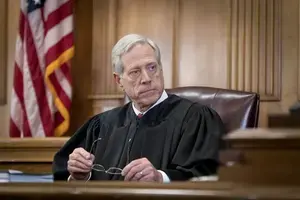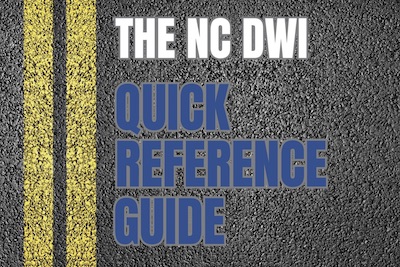Dismissal of Domestic Violence Charges
 Domestic violence charges in North Carolina carry significant legal consequences that affect families, relationships, housing, and employment opportunities. North Carolina law defines domestic violence as a specific criminal offense, while also providing civil remedies through protective orders.
Domestic violence charges in North Carolina carry significant legal consequences that affect families, relationships, housing, and employment opportunities. North Carolina law defines domestic violence as a specific criminal offense, while also providing civil remedies through protective orders.
Criminal charges involving domestic violence require careful consideration of Constitutional Rights, bond conditions, and court-ordered restrictions. Release from custody after an arrest often follows special rules and procedures somewhat unique to domestic violence cases in North Carolina.
When facing domestic violence allegations, understanding your rights and the legal process helps in making informed decisions about your case. The Powers Law Firm helps people navigate both criminal charges and civil proceedings related to domestic violence in the greater Charlotte region, including Mecklenburg, Union, Iredell, and Lincoln Counties.
The decision to proceed with or dismiss criminal charges rests with the prosecutor's office, not the complaining witness. That's different from civil matters like Domestic Violence Protective Orders (DVPOs or "50B Orders"), where the person seeking protection may request dismissal of the civil action.
This guide explains what you need to know about domestic violence charges, including:
- Can Domestic Violence Charges be dismissed?
- What constitutes domestic violence under NC law
- Types of criminal charges and their consequences
- How bond and release procedures work
- Whether charges can be dismissed
- How protective orders can affect criminal cases
- Your legal rights and options
- Steps to take after an arrest
If you face domestic violence charges or have questions about your case, you may call the Powers Law Firm at 704-342-4357. You may also TEXT that number. Bill Powers responds to emails sent to Bill@CarolinaAttorneys.com. Everything you tell us remains confidential.
Once law enforcement makes an arrest for domestic violence in North Carolina, the power to dismiss criminal charges rests solely with the District Attorney's office. This often surprises people who believe the complaining witness can "drop the charges." Though prosecutors consider the wishes of complaining witnesses, the State of North Carolina serves as the prosecuting party in criminal court.
Article 46 of Chapter 15A of the Criminal Law sets forth the North Carolina Crime Victims' Rights Act.
Several factors guide prosecutorial decisions about dismissal. The available evidence plays a central role. Prosecutors review photographs, medical records, witness statements, 911 recordings, and other documentation. They assess whether sufficient evidence exists to prove the case beyond a reasonable doubt at trial. Cases with limited evidence may face a higher likelihood of dismissal.
The complaining witness's participation can affect the prosecution. Some people think refusing to cooperate automatically ends the case. That's not always true. Prosecutors may proceed using other evidence like emergency calls, photographs, or officer testimony. They may also issue a subpoena , requiring the alleged victim to appear in court. Yet practical difficulties in proving cases without witness cooperation sometimes lead to dismissal.
Procedural issues occasionally result in dismissal. Law enforcement must follow proper arrest procedures. Courts must protect Constitutional rights and statutory requirements regarding bond hearings and timely release conditions under NCGS § 15A-534.1. Violations of these requirements may provide grounds for dismissal in certain circumstances.
Some jurisdictions offer deferred prosecution programs for first-time offenders. These programs typically require completion of counseling, community service, or other conditions. Meeting all requirements can lead to dismissal. Participation depends on factors like criminal history and the specific allegations involved and is determined on a case-by-case basis. One should not assume deferral programs are always an option.
Dismissal of criminal charges does not automatically resolve related civil matters. Domestic Violence Protective Orders remain in effect unless separately dismissed by the civil court. Each court system - criminal and civil - follows different rules and procedures regarding dismissal.
The timing of dismissals varies. Cases may resolve at first appearance, after discovery review, or even on the day of trial. Each case follows its own timeline based on the specific circumstances, available evidence, and court schedules.
A dismissal ends the criminal case but may carry other effects. The arrest remains on record unless expunged. Future employers or landlords might see the arrest during background checks. Some dismissal methods prevent refiling charges, while others leave that possibility open.
The Powers Law Firm assists clients facing domestic violence charges in Charlotte, Mecklenburg County, Union County NC, and surrounding areas. Call or text 704-342-4357 to discuss your specific situation.
Court Orders sometimes prohibit contact regardless of who initiates it. Responding to calls, texts, or messages i f precluded by the Terms and Conditions of Release or a civil Domestic Violence Protective Order may serve to violate both bond conditions and protective orders, potentially leading to new charges and revocation of bond in some circumstances.
The Court will likely issue an order for your arrest if you miss your appearance without legal excuse or prior authorization. Missing court also typically results in bond forfeiture and may affect plea options in your case.
Do I need a lawyer if I've been falsely accused?While not required, we think people facing allegations of domestic violence benefit from the support and guidance provided by an experienced criminal defense lawyer. Our goal is to develop a defense strategy tailored to the unique aspects of the case. We believe early legal representation helps protect rights and guide responses to both criminal charges and protective orders. Each case is different. Lawyer up!
While not required, we think people facing allegations of domestic violence benefit from the support and guidance provided by an experienced criminal defense lawyer. Our goal is to develop a defense strategy tailored to the unique aspects of the case. We believe early legal representation helps protect rights and guide responses to both criminal charges and protective orders. Each case is different. Lawyer up!
Understanding Domestic Violence Under NC Law
North Carolina law addresses domestic violence through both criminal charges and civil remedies. The criminal offense, defined in North Carolina General Statute § 14-32.5, carries potential jail time of up to 150 days as a Class A1 misdemeanor - the most serious classification of misdemeanor charges under state law.
The nature of the relationship between the accused and the complaining witness determines whether charges fall under domestic violence laws. These relationships include:
- Current or former spouses
- People who live together or previously shared a home
- Parents and children
- People who have a child in common
- Current or former household members
- People in current or past dating relationships
- Same-sex couples and partners
Criminal charges often associated with domestic violence include:
- Assault and battery
- Assault on a female
- Simple assault
- Communicating threats
- Interfering with emergency communications (911 calls)
- Injury to personal property
- Violation of protective orders
- Domestic criminal trespass
- Stalking
Civil remedies exist separate from criminal prosecution through Chapter 50B of the North Carolina General Statutes. This allows people to seek protection through Domestic Violence Protective Orders (DVPOs), even without criminal charges being filed. The civil statute encompasses attempting to cause bodily injury, placing someone in fear of imminent serious harm, harassment causing emotional distress, and other acts defined in related criminal statutes.
Law enforcement takes domestic violence calls seriously, responding immediately when notified. Police officers assess the situation, gather evidence, and may make arrests based on probable cause that a crime occurred. The presence of visible injuries, witness statements, property damage, and other factors guide these decisions.
Unlike some other misdemeanors (and even certain felonies), domestic violence cases follow special pretrial release procedures under NCGS § 15A-533. These rules affect who sets bond conditions and when release may occur after arrest. The law requires review by a judge rather than a magistrate during the first 48 hours of detention in many cases.
Understanding these legal frameworks helps explain why domestic violence charges proceed differently than some other criminal matters. The combination of criminal and civil remedies aims to address both immediate safety concerns and longer-term protection needs.
For questions about domestic violence laws in Charlotte, Mecklenburg County, Union County NC, or surrounding areas, contact the Powers Law Firm at 704-342-4357. You may also text this number.
Types of Domestic Violence ChargesDomestic violence charges in North Carolina range from misdemeanors to serious felony offenses. The primary charge under North Carolina General Statute § 14-32.5 is a Class A1 misdemeanor, carrying up to 150 days in jail. Yet domestic violence cases often involve multiple related charges, depending on the specific allegations and circumstances.
District Attorneys regularly file Class A1 misdemeanor charges in domestic violence cases. These include assault on a female , which requires proof the defendant is male and at least 18 years old. Assault inflicting serious injury focuses on the extent of harm rather than gender. When weapons become involved, even without physical contact, prosecutors may charge assault with a deadly weapon . Violation of an existing domestic violence protective order and interfering with emergency communications (preventing 911 calls) also fall into this most serious misdemeanor classification.
Less serious misdemeanors still carry significant consequences in domestic cases. Simple assault , for example, occurs when someone attempts to cause or intentionally causes physical harm to another. Communicating threats involves statements that would cause a reasonable person to fear for their safety. Property damage charges often accompany domestic incidents, especially when parties share a residence or one person damages the other's belongings. Trespassing charges are also possible in certain circumstances. North Carolina recognizes both First Degree and Second Degree Trespassing .
The most serious domestic violence cases can result in felony charges. When attacks cause severe injuries or involve deadly weapons that cause serious bodily injury, prosecutors may pursue elevated charges. Strangulation, recognized as particularly dangerous in domestic situations, constitutes a separate felony offense. Multiple violations of protective orders may lead to felony prosecution.
District Attorneys base charging decisions on available evidence. They review medical records documenting injuries and examine photos or videos from the scene. Witness statements, including those from law enforcement who responded, may play a key role. Text messages, emails, and social media posts often provide important evidence. Recorded 911 calls capture real-time accounts of events.
Court procedures vary based on charge classification. Misdemeanor cases begin in District Court, where judges hear evidence and render verdicts in bench trials. More serious felony matters may move to Superior Court through the indictment process, where defendants have the right to jury trials. Cases involving both criminal charges and protective orders require careful attention to both criminal and civil court calendars.
Prior convictions significantly affect how prosecutors and courts handle new charges. Past domestic violence convictions or protective order violations often lead to enhanced charges. Courts consider criminal history when setting bond amounts and conditions of release. Previous convictions may limit plea bargaining options and typically result in more severe sentences upon conviction.
The Powers Law Firm assists clients facing domestic violence allegations in Charlotte, Mecklenburg County, Union County NC, and surrounding areas. Call or text 704-342-4357 for a confidential consultation.
The Arrest and Release Process
North Carolina law sets specific procedures for domestic violence arrests that differ from other criminal matters. These differences start immediately after arrest through North Carolina General Statute § 15A-534.1, which requires a different approach to pretrial release and bond conditions.
After a domestic violence arrest, defendants appear before a judge rather than a magistrate for the setting of pretrial release conditions. This represents a key difference from many criminal charges, where magistrates typically handle initial bonds. The law requires this judicial review to ensure proper consideration of safety concerns and appropriate release conditions.
During the first 48 hours after arrest, only judges may set bonds in domestic violence cases. This means someone arrested on Friday evening may remain in custody for a substantial period of time. After 48 hours pass without a judge's review, magistrates are given authority to set pretrial release conditions. This timeline help protect both constitutional rights regarding excessive bail while addressing immediate safety considerations.
Release conditions in domestic violence cases often include specific restrictions. Judges regularly order no contact with the complaining witness, either directly or through third parties. This may include staying away from specific locations like homes, workplaces, or schools.
Pretrial release may involve secured or unsecured bonds. Secured bonds require posting money or property to ensure court appearances. Unsecured bonds function as promises to pay if court dates are missed. The type and amount of bond depends on factors like:
- Nature of the allegations
- Defendant's ties to the community
- Prior criminal record
- History between the parties
- Risk of further incidents
- Likelihood of appearing in court
First appearance hearings provide opportunities to review these conditions. Defense attorneys may request modifications based on changes in circumstances or to address practical concerns like child custody exchanges or shared business interests.
Some jurisdictions offer pretrial services programs that provide additional supervision options. These programs may include regular check-ins, substance abuse monitoring, or electronic monitoring as alternatives to high secured bonds.
It's important to note that the Terms and Conditions of Release may be separate and apart from and in addition to any conditions set forth in a Domestic Violence Protective Order (DVPO). As it relates to a Chapter 50B Domestic Violence restraining order , judges may consider whether to prohibit the possession of firearms or to require the surrender of existing weapons.
The Powers Law Firm assists clients with pretrial release issues in Charlotte, Mecklenburg County, Union County NC, and surrounding areas. Call or text 704-342-4357 for help understanding bond conditions and release options.
Impact of Protective Orders on Criminal Cases
Domestic violence cases often involve both criminal charges and civil protective orders. Each legal proceeding follows separate rules, yet the civil Domestic Violence Protective Order (DVPO) can significantly affect how criminal cases proceed. Understanding this relationship helps navigate both court systems effectively.
A DVPO creates court-ordered restrictions separate from criminal release conditions. While criminal courts may order no contact as part of bond conditions, a civil DVPO provides additional protections through Chapter 50B of the North Carolina General Statutes. These orders address immediate safety concerns like living arrangements, property possession, and temporary child custody matters.
The civil court process begins when someone files for protection, often while criminal charges remain pending. Judges may issue temporary ex parte orders without the defendant present. These orders remain effective until a full hearing occurs, typically within 10 days. At the hearing, both parties have the right to present evidence about whether a permanent order should be entered.
Protective orders can affect criminal cases in several ways. Bond conditions usually incorporate DVPO restrictions, meaning violations may result in new criminal charges and revocation of bond. As such, property retrieval often requires careful coordination to avoid contact between parties. Child custody exchanges may need third-party assistance or supervised visitation centers.
North Carolina also reports protective orders to federal databases through the National Crime Information Center (NCIC). This registration may affect firearm rights under both state and federal law. Law enforcement across relevant jurisdictions in North Carolina receive notice of active orders, impacting how they respond to future incidents and may result in the revocation or suspension of a concealed carry permit.
Changes in protective orders may also influence criminal proceedings. Modifications require court approval, even if both parties agree. Criminal courts consider existing DVPOs when reviewing bond conditions or plea arrangements. Violations of protective orders can affect prosecutors' decisions about pending criminal charges.
Protective orders typically last one year but may be extended in appropriate circumstances. Even if criminal charges resolve favorably, the civil order remains in effect until expiration or separate dismissal by the civil court. This means restrictions continue regardless of the criminal case outcome.
The Powers Law Firm helps clients address both criminal charges and protective orders in Charlotte, Mecklenburg County, Union County NC, and surrounding areas. Call or text 704-342-4357 for assistance understanding how these orders affect your situation.
Legal Rights When Facing Domestic Violence ChargesConstitutional rights protect people facing domestic violence charges in North Carolina. These fundamental protections begin at first contact with law enforcement and continue through the resolution of the case. Understanding your rights can help you make informed decisions when navigating the criminal justice system.
The right to remain silent serves as a cornerstone protection. Police officers want to gather information after domestic violence calls. Yet statements to law enforcement, even those intended to explain or defend actions, may later appear in court. Taking time to speak with an attorney before making statements helps safeguard legal rights. Exercising your right to remain silent cannot be used against you. Taking the Fifth doesn't make you "appear guilty" to a judge or jury.
We think legal representation matters from the beginning. Defense attorneys assist with initial court appearances, explaining procedures, and advocating for reasonable bond conditions. The right to counsel means the Court will appoint an attorney for those who cannot afford to hire one if the possibility of jail exists.
Domestic violence cases follow special bond procedures under North Carolina law. Though the 48-hour hold provision may delay setting terms and conditions of release or bail, it ordinarily cannot extend beyond a certain timeline without possibly violating constitutional protections against excessive bail. After 48 hours, defendants have the right to reasonable bond conditions considering both public safety and the right to pretrial release.
The right to trial means prosecutors must prove guilt beyond a reasonable doubt. This high standard requires more than just accusations. Defendants may question evidence, challenge witness testimony, and present their own defense. The decision of whether to proceed to trial belongs to the person charged..
Evidence preservation can play a key role in protecting legal rights. Text messages, emails, photos, videos, and social media posts may provide important information. Saving these materials helps defense attorneys evaluate cases and prepare proper defenses. Yet no one should try to contact the alleged victim (or ask others to do so). Well-intended communications, even in response to contact from the alleged victim, can violate court orders.
Court orders require careful attention to detail. This includes understanding and following:
- Bond conditions
- No contact provisions
- Travel restrictions
- Substance abuse testing
- Court date appearances
- Treatment requirements
Missing court dates or violating conditions may result in additional charges, regardless of the outcome of the original case. Courts provide notice of required appearances, but keeping track of dates and requirements remains the defendant's responsibility.
The Powers Law Firm helps protect legal rights of clients facing domestic violence charges in Charlotte, Mecklenburg County, Union County NC, and surrounding areas. Call or text 704-342-4357 to discuss your rights and options.
Steps to Take After a Domestic Violence ArrestThe time after a domestic violence arrest requires careful attention to court orders, dates, and bond requirements. Taking organized, thoughtful steps helps protect your legal rights while navigating the court system.
Understanding and following release conditions comes first. Read all court papers carefully, writing down restrictions and requirements. Ask questions about anything that is unclear. Court orders may affect where you may go, who you may contact, and what you must do. Keep copies of all your paperwork in a safe place. Take photos of documents with your phone as a backup.
Maintain a detailed calendar of court dates and other requirements. Missing court appearances leads to additional problems, regardless of the original charges. Include first appearance dates, trial dates, and any required meetings with pretrial services. Add reminders several days before each date.
Document preservation matters. Save text messages, emails, photos, videos, or social media posts that existed before charges. Back up phone data. Print important items. Give copies to your attorney. Remember - following this process does not mean creating new contact or communications that might violate court orders.
Work and housing may require immediate attention. Address scheduling issues early. If court orders affect your living situation, make arrangements that comply with restrictions. This might mean finding temporary housing or coordinating property retrieval through attorneys or the Sheriff's Department.
Financial matters need review. Court orders may affect shared accounts or bill payments. Make arrangements that follow court restrictions while meeting obligations. Keep records of payments and changes. Avoid financial decisions that might create new legal issues.
Child custody and visitation require special care. Make certain a preexisting custody Order does not violate the new terms and conditions of release or a DVPO. Seek legal counsel if you have questions or are unsure what to do. Use approved third parties or visitation centers if required. Keep detailed records of compliance. Avoid creating new custody conflicts during criminal proceedings.
Stay in contact with your attorney. Report any new developments. Ask questions when unsure about requirements. Provide updates about employment, housing, or other changes that might affect your case. Remember communications with your attorney are confidential.
The Powers Law Firm helps clients navigate steps after domestic violence arrests in Charlotte, Mecklenburg County, Union County NC, and surrounding areas. Call or text 704-342-4357 for assistance understanding what to do next.
Understanding Your Next Steps: A Final Word About Domestic Violence Charges
Domestic violence charges in North Carolina often involve complex legal proceedings in both criminal and civil courts. Each case follows its own path through the justice system, affected by specific facts, evidence, and court orders. Understanding how these systems work helps in making informed decisions about your situation.
The time immediately after charges matter. Following court orders, maintaining proper documentation, and protecting legal rights requires attention to detail. Bond conditions and protective orders set clear boundaries that courts expect people to follow. Court dates demand careful attention to schedules and requirements.
Criminal charges proceed independently of civil protective orders, yet they may affect each other. Prosecutors make decisions about criminal cases, while civil courts handle protective orders separately. Each court system follows different rules and procedures, though their orders may overlap in what they require.
The Powers Law Firm guides clients through both criminal and civil proceedings in Charlotte, Mecklenburg County, Union County NC, and surrounding areas. We explain options, outline procedures, and help protect legal rights. Call or text 704-342-4357 to schedule a confidential consultation. You may also email Bill Powers directly at Bill@CarolinaAttorneys.com.
Helpful Information About Criminal Charges- What is a DVPO - Domestic Violence Protective Order?
- What You Need to Know: 50B Domestic Violence Protection Order
- Experienced Domestic Violence Lawyers in Charlotte NC
- Violations of Domestic Violence Orders- What You Need to Know
- DVPO - Domestic Violence Protective Orders - Restraining Orders
- Who sets the Bond and Terms and Conditions of Release on Domestic Violence Charges?
- What is Common Law Marriage?
- The North Carolina Domestic Violence Pretrial Release and Bail Law
- Charlotte Criminal Defense Lawyer: Assault & Battery Charges
- North Carolina Criminal Law 14-39: Second Degree Kidnapping (Hostage, Ransom, Shield, or Terror)
- How is Court Scheduled in North Carolina?
- Sex Offender Registration in North Carolina
- DVPO Domestic Violence Protective Order
 Powers Law Firm PA Home
Powers Law Firm PA Home



















